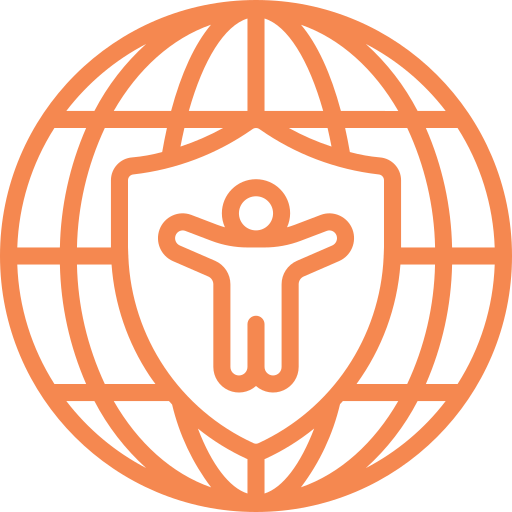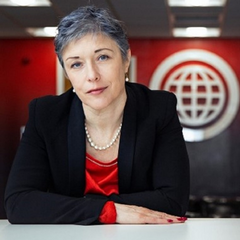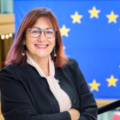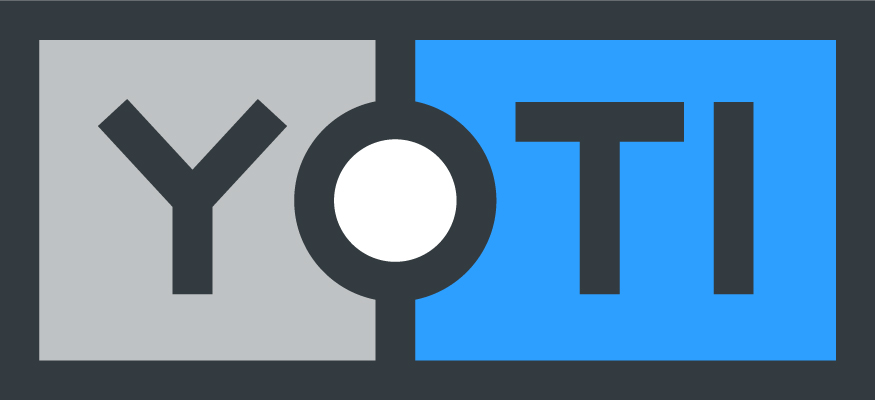The European Child Safety Online Conference 2022 will gather policymakers, industry players, national authorities representatives as well as civil society experts to review the provisions of the new European strategy for a Better Internet for Kids (BIK+) and of the proposal for the new regulation to prevent and combat child sexual abuse, as well as discuss the extent to which the initiatives proposed are fit-for-purpose and are likely to remain future-proof to address the pace of digital innovation. It will explore how the proposed rules will interact with other EU and global policies and self-regulation initiatives aimed at tackling the different online risks that children are exposed to, and at making the online world a better, safer, fairer place. It will also focus on the ongoing efforts undertaken to step up the fight against the creation and propagation of child sexual abuse material (CSAM) online. Finally, it will examine the role that technology and innovative solutions can play in achieving these objectives, feature examples of initiatives undertaken in Member States to protect children online, identify best practices, and ask what more is needed to equip children with the necessary digital skills and tools to safely benefit from what the Internet has to offer.

Child Safety-by-design, responsible use of children’s data and age-appropriate content

Digital Literacy to promote safe, healthy and responsible behaviour online

Strengthening the fight against the creation and dissemination of CSAM

 Dubravka Šuica, Vice President for Demography and Democracy, European Commission
Dubravka Šuica, Vice President for Demography and Democracy, European Commission Vice President for Demography and Democracy
European Commission

 Ylva Johansson, Commissioner for Home Affairs, European Commission
Ylva Johansson, Commissioner for Home Affairs, European Commission Ylva Johansson (born 13 February 1964) was appointed European Commissioner for Home Affairs in December 2019. From Sweden, she was Minister for Employment in the Swedish Government from 2014 to 2019, Minister for Welfare and Elderly Healthcare from 2004 to 2006 and Minister for Schools from 1994 to 1998. Ms. Johansson was educated at Lund University and the Stockholm Institute of Education. She is married with three children.
Commissioner for Home Affairs
European Commission

 Vít Rakušan, 1st Deputy Prime Minister and Minister of the Interior, Czech Republic
Vít Rakušan, 1st Deputy Prime Minister and Minister of the Interior, Czech Republic Education:
Faculty of Arts, University of Augsburg, scholarship study stay
Faculty of Education, Charles University, Management of Education
Professional history:
Member of the Security Committee of the Chamber of Deputies
Member of the Foreign Affairs Committee of the Chamber of Deputies
Chairman of the Permanent Commission for the Supervision of the Military Intelligence Service, Chamber of Deputies
1st Deputy Prime Minister and Minister of the Interior
Czech Republic
*via pre-recorded speech

 Julie Inman Grant, Australian eSafety Commissioner
Julie Inman Grant, Australian eSafety Commissioner Julie Inman Grant is Australia’s eSafety Commissioner. In this role, Julie leads the world’s first government regulatory agency committed to keeping its citizens safer online.
Julie has extensive experience in the non-profit and government sectors and spent two decades working in senior public policy and safety roles in the tech industry at Microsoft, Twitter and Adobe.
The Commissioner’s career began in Washington DC, working in the US Congress and the non-profit sector before taking on a role at Microsoft. Julie’s experience at Microsoft spanned 17 years, serving as one of the company’s first and longest-standing government relations professionals, ultimately in the role of Global Director for Safety & Privacy Policy and Outreach. At Twitter, she set up and drove the company’s policy, safety & philanthropy programs across Australia, New Zealand & Southeast Asia.
As Commissioner, Julie plays an important global role as Chair of the Child Dignity Alliance’s Technical Working Group and as a Board Member of the WePROTECT Global Alliance. The Commissioner also serves on the World Economic Forum’s Global Coalition for Digital Safety and on their XR Ecosystem Governance Steering Committee on Building and Defining the Metaverse. Under her leadership, eSafety has joined forces with the White House Gender Policy Council and Government of Denmark on the Global Partnership for Action on Gender-Based Harassment & Abuse.
In 2021, Julie oversaw significant increases in the eSafety office’s budget, increased staffing levels and launched the global Safety by Design initiative. As Commissioner, she has led work to stand up novel and world-first regulatory regimes under the new Online Safety Act 2021, with implementation of a sweeping new set of reforms beginning on 23 January 2022.
Commissioner Inman Grant was reappointed for a further 5-year term by the Australian Government in January 2022.
The Commissioner was recently named one of Australia’s most influential women by the Australian Financial Review and a leading Australian in Foreign Affairs by the Sydney Morning Herald. In 2020, the World Economic Forum (WEF) and Apolitical appointed the Commissioner as one of the #Agile50, the world’s most influential leaders revolutionising government.
More information can be found at www.esafety.gov.au.
eSafety Commissioner
Australia
*via pre-recorded speech

 Philipp Amann, Head of Expertise & Stakeholder Management, Europol
Philipp Amann, Head of Expertise & Stakeholder Management, Europol Philipp is the Head of Expertise and Stakeholder Management at the European Cybercrime Centre (EC3) and oversees the delivery of cyber-security and cybercrime related products such as Europol’s Internet Organised Crime Threat Assessment. Other key areas of responsibility include the assessment of current and future technology trends, managing EC3’s industry advisory groups and academic advisory network, prevention & awareness, and capacity building.
Prior to that, he held positions with various international organisations such as the Organisation for the Prohibition of Chemical Weapons, the International Criminal Court, the Organization for Security and Co-operation in Europe and the Comprehensive Nuclear-Test-Ban Treaty Organization.
Philipp has more than 20 years of relevant experience in cyber security management, combatting cybercrime, policy development, digital forensics and the analysis and management of intelligence.
Philipp has worked in various fields, including the financial sector, global disarmament and arms control, international investigations and on issues related to safety and security in cyberspace, topics he deeply cares about. He is also a member of ENISA’s Advisory Group, the World Economic Forum‘s International Alliance against Cybercrime and Carnegie Endowment’s FinCyber Strategy Project.
His professional experience is complemented by a PhD degree and a Master’s degree in business informatics from the University of Vienna. He also holds an MSc in Forensic Computing and Cybercrime Investigation from the University College Dublin.
Head of Expertise & Stakeholder Management
Europol

 Cathrin Bauer Bulst, Head of Unit Security in the Digital Age, DG HOME, European Commission
Cathrin Bauer Bulst, Head of Unit Security in the Digital Age, DG HOME, European Commission Cathrin Bauer-Bulst serves as Head of the Cybercrime Unit in in DG Migration and Home Affairs of the European Commission. Her unit develops legislative proposals and policy and coordinates EU efforts to better fight cybercrime and child sexual abuse. The team works on topics ranging from substantive criminal law to procedural question such as access to evidence, encryption, and the impact of internet governance rules on criminal investigations. She co-chairs the Commission’s informal task force on electronic evidence and the Governmental Advisory Committee Working Group on Public Safety issues within ICANN. She has a background in law and IT.
Head of Unit Security in the Digital Age, DG HOME
European Commission

 June Lowery-Kingston, Head of Unit "Accessibility, Multilingualism & Safer Internet", DG CONNECT, European Commission
June Lowery-Kingston, Head of Unit "Accessibility, Multilingualism & Safer Internet", DG CONNECT, European Commission June Lowery-Kingston (@lk_june) is Head of Unit Accessibility, Multilingualism & Safer Internet at the Directorate-General for Communications Networks, Content and Technology (DG CNECT) at the European Commission. Her work aims to promote a better internet for children by protecting and empowering children online, and improving the quality of content available to them. Her unit is also responsible for making digital life in Europe more accessible and inclusive, regardless of language, disability and age. As Equality Coordinator in DG CNECT, she also maintains an overview of the implementation of the Union of Equality within the DG.
Linked-In: https://www.linkedin.com/in/june-lowery-kingston-2a459476/
Head of Unit "Accessibility, Multilingualism & Safer Internet"
DG CONNECT
European Commission

 Melissa Mathieson, Director of Regulatory Futures, UK ICO
Melissa Mathieson, Director of Regulatory Futures, UK ICO Following 18 years of law enforcement experience in serious organised crime investigations, Melissa Mathieson joined the Information Commissioner’s Office in 2019.
Melissa manages teams of investigators and policy professionals with responsibility for many of the most serious and high-risk issues in data protection and information rights in the UK. Her teams have published landmark investigation reports on a range of novel compliance issues, including police extraction of mobile phones, and use of live facial recognition technology.
From early 2020, Melissa oversaw the ICO’s policy response to the Covid-19 pandemic, supporting the responsible use of data throughout the public health emergency. She established a rapid advice and stakeholder engagement function, providing clear, expert guidance to stakeholders responding directly to the crisis, working with over 400 stakeholders.
Since 2021 Melissa has acted as the Director for Regulatory Futures, with responsibilities that include the delivery of the Children’s code.
Director of Regulatory Futures
UK ICO

 Susie Hargreaves OBE, CEO, Internet Watch Foundation
Susie Hargreaves OBE, CEO, Internet Watch Foundation Susie joined the Internet Watch Foundation (IWF) in September 2011 as Chief Executive.
Susie is a Director of the UK Safer Internet Centre. She is also a member of the NCA CEOP Command Strategic Governance Group; the International Telecommunication Union (ITU) Child Online Protection Working Group and the Broadband Commission Working Group.
She’s an Executive Board member of the UK Council Internet Safety (UKCIS). Recently, Susie became a Member of the World Economic Forum’s Global Coalition for Digital Safety.
Susie is a Clore Fellow and was a finalist for a European Woman of Achievement Award Susie was awarded an OBE in the Queen’s Birthday Honours in 2016 for ‘Services to Child Online Safety’.
CEO
Internet Watch Foundation
(virtual speaker)

 Anna Rywczyńska, Head of the Digital Education Team at NASK and Coordinator of the Polish Safer Internet Centre
Anna Rywczyńska, Head of the Digital Education Team at NASK and Coordinator of the Polish Safer Internet Centre Researcher in the field of digital technologies in the context of cultural phenomena and social practices and specialist in promotion activities in the field of child and youth online safety. The author of publications and educational tools and a member of international working expert groups. In 2018 she was listed among 100 persons recognized for their actions for the development of digital competence in Poland.
Head of the Digital Education Team at NASK
Coordinator of the Polish Safer Internet Centre

 Emilio Puccio, Secretary General, Intergroup on Children's Rights, European Parliament
Emilio Puccio, Secretary General, Intergroup on Children's Rights, European Parliament Emilio Puccio serves as Secretary General of the European Parliament Intergroup on Children’s Rights, managing the parliamentary, legislative and advocacy work of the entire network.
Emilio also sits in the advisory board of INHOPE and the Better Internet for Kids initiative (BIK). Furthermore, Emilio served as a member of the Judging Panel for the 2020 GSMA Global Mobile Awards (GLOMOs) for the category Best Mobile Initiative for Enhancing Children’s Lives.
Before joining the Intergroup on Children’s Rights, Emilio has worked extensively on human rights, having worked on business and human rights issues in New York City at the United Nations Global Compact and as part of the Individuals at Risk Program at Amnesty International USA. As a qualified lawyer, Emilio served in the Legal office of the Italian General Consulate in Barcelona.
Emilio holds a Juris Doctor Magna cum laude in Law from the University of Palermo, a Master’s Degree in International Business Management from EADA Business School in Barcelona, and a Master in Diplomatic Studies from the Italian Society for International Organizations (SIOI) in Rome.
Secretary General, Intergroup on Children's Rights
European Parliament

 Alexandra Evans, Head of Safety Public Policy, Europe, TikTok
Alexandra Evans, Head of Safety Public Policy, Europe, TikTok Alexandra is Head of Safety Public Policy for Europe. Before joining TikTok, Alexandra was Chief of Strategy at the 5Rights Foundation where she played a leading role in the successful campaign to enshrine enhanced data rights for children in UK law. As Policy Director of the BBFC, she was responsible for UK classification standards in cinemas, on DVD and online. Topics Alexandra works on include online child sexual abuse and exploitation, bullying/harassment, harmful and inappropriate content, data protection and privacy, access to information, evolving developmental capacities of children, design of services, digital wellbeing and digital rights. Before specialising in digital policy, Alexandra practiced law at Mishcon de Reya, advising clients on discrimination, free speech, privacy and reputation protection.
Head of Safety Public Policy, Europe
TikTok
(virtual speaker)

 Catherine Garcia-van Hoogstraten, Director Digital Safety, European Government Affairs, Microsoft
Catherine Garcia-van Hoogstraten, Director Digital Safety, European Government Affairs, Microsoft Catherine Garcia-van Hoogstraten, in her capacity of Director Digital Safety, European Government Affairs Microsoft, she drives and build consensus on European regulatory and policy issues at the intersection of Digital Safety, Responsible Tech, Content Regulation, Human Rights. Career-long track record and solid understanding of EU tech policy and legal challenges across a range of critical policy and regulatory files. She is Juris Doctor in Law and Political Science, has PhD studies in EU Consumer and Product Safety Law and has pursued specialization in International Human Rights, Privacy, Information Security and Philosophy of Technology Design. Follow her work on LinkedIn and CatherineGvh.
Director Digital Safety, European Government Affairs, Microsoft
Microsoft

 Dave Miles, Safety Policy Director EMEA, Meta
Dave Miles, Safety Policy Director EMEA, Meta Safety Policy Director EMEA
Meta

 Ann Becker, Head of Policy and Public Affairs, Interactive Software Federation of Europe (ISFE)
Ann Becker, Head of Policy and Public Affairs, Interactive Software Federation of Europe (ISFE) Swedish national, Ann holds an MA from King’s College, University of London, in UK, EU & US Copyright Law and an MA from the University of Paris in Regional Economic Development and international Cooperation. Prior to joining ISFE, Ann held several senior positions in the media and entertainment sector: Senior Adviser to the European Publishers Council in Brussels; Director for the IP, Media, Entertainment & Sports practice at Hill + Knowlton Strategies in Brussels. Earlier in her career, Ann represented the French media group Lagardère SCA towards the European institutions in the field of publishing, tv & radio broadcasting, retail and sports rights. At ISFE, the Policy & Public Affairs team ensures that the voice of a responsible video games ecosystem is heard and understood, that its creative and economic potential is supported and celebrated, and that video game players around the world continue to enjoy great gaming experiences. www.isfe.eu
Head of Policy and Public Affairs
Interactive Software Federation of Europe (ISFE)

 Julie Dawson, Chief Policy & Regulatory Officer, Yoti
Julie Dawson, Chief Policy & Regulatory Officer, Yoti Julie leads regulatory and government relations for Yoti’s digital identity platform; developing policy approaches for fraud prevention and safeguarding, liaising with national and sectoral trust frameworks, in conjunction with Yoti’s internal and external ethics boards.
Yoti is an identity checking system that allows organisations to verify who people are, online and in person. Yoti offers Identity verification, Age verification, E-signatures and Authentication.
Yoti is a team of over 300, has its HQ in London and counts over 11 million installs of the Yoti app; has conducted over 500 million age checks.
Chief Policy & Regulatory Officer
Yoti

 Hans Martens, Head of Digital Citizenship Department, European Schoolnet
Hans Martens, Head of Digital Citizenship Department, European Schoolnet Hans Martens (PhD) is Head of Digital Citizenship at European Schoolnet. He is responsible for the Digital Citizenship strategy of the organisation, managing a team of 15+ dedicated to a variety of public and private projects covering aspects such as digital skills, media literacy, online safety and children rights in a digital world. Within this context, Hans is leading – on behalf of the European Commission – the Better Internet for Kids initiative while coordinating the Insafe network of Safer Internet Centres, among other activity lines. With a background in research and teaching at the University of Antwerp, combined with an advisory role in various Flemish, European, and American media literacy networks and projects, Hans joined European Schoolnet in February 2012. His key tasks include governance, management and outreach, team and project coordination, liaising with various Ministries of Education and European Commission units, as well as being the point of contact for other key strategic partners, from government, civil society and industry.
Head of Digital Citizenship Department
European Schoolnet

 Leanda Barrington-Leach, Director of International Advocacy & Head of European Affairs at 5Rights
Leanda Barrington-Leach, Director of International Advocacy & Head of European Affairs at 5Rights Director of International Advocacy & Head of European Affairs
5Rights

 Dirk Bosmans, Director of Operations, Pan-European Game Information (PEGI) System
Dirk Bosmans, Director of Operations, Pan-European Game Information (PEGI) System Dirk Bosmans is Director of Operations for PEGI s.a., the organisation that runs the pan-European age rating system for video games and apps. He oversees the continuous development of the PEGI system and works with national trade associations, governmental organisations and industry partners across Europe on raising awareness about video game culture and media literacy in general and age ratings for games in specific.
Director of Operations
Pan-European Game Information (PEGI) System

 Iverna McGowan, Director, Europe Office of CDT
Iverna McGowan, Director, Europe Office of CDT Iverna McGowan is Director of CDT’s Europe Office, and an advocate for ensuring international human rights standards are at the core of law and policy related to technology. At CDT, Iverna leads the Brussels-based Europe team that works to put human rights and democracy at the center of the European Union and its member countries’ tech policy agendas.
Prior to joining CDT, Iverna served as a Senior Advisor to the UN Office of the High Commissioner for Human Rights. She led the work on protecting online civic space and human rights and technology more broadly for the European Regional Office. She was also the focal point on the rule of law and offered recommendations for the EU’s new rule of law mechanism.
Iverna previously served for seven years as the Executive Director and Advocacy Director for Europe at Amnesty International’s European Institutions Office. Under her leadership, the office led and won a number of significant campaigns on human rights. On account of this human rights advocacy she was listed by Politico in 2017 as one of the most influential women on EU policy and law making. At the European Parliament in 2016, she accepted, on behalf of her team, the Sinti and Roma European Civil Rights Prize for the office’s groundbreaking work in strategic litigation under the EU’s Race Equality Directive. She also served as the organisation’s international spokesperson on EU affairs.
Iverna has also worked at the Irish Department of Foreign Affairs and, before embarking on a career in the public sector, headed up a team at the French IT, web infrastructure, and services company Groupe Open.
Iverna serves on the EU Board of the National Resource Governance Institute and is a previous board member of Transparency International’s EU Office. She was also elected by civil society peers in 2017 to the advisory panel of the EU Fundamental Rights Agency. Iverna also founded her own consultancy which supports civil society leaders, and conducts human rights research and policy analysis.
She holds a B.A. in European Studies from Trinity College Dublin and an LL.M from Maastricht University’s School of European Law, where she was awarded a scholarship for having graduated as a top three percent scholar. She is a frequent commentator on human rights, EU foreign policy, and gender equality, and has contributed to pieces by Euronews, CNN, BBC, RTE, and Reuters.
Director
Europe Office of CDT

 Claire-Marie Healy, EU digital policy expert
Claire-Marie Healy, EU digital policy expert Claire-Marie Healy is a Brussels-based independent advisor and expert in tech and digital policy. Most recently, Claire-Marie managed the Tech, Media, Telecom and Mobility activities at the Centre on Regulation in Europe (CERRE). Claire-Marie also worked for the GSMA, the industry organisation that represents the interests of mobile network operators worldwide, where she held various positions including EU Public Policy Manager following regulations on mobile telecommunication in Brussels, and Project Manager for Mobile Connect, the online authentication and identification service provided by mobile operators globally.Earlier in her career, Claire-Marie worked at the OECD in Paris, following ICT policies for the Business and Industry Advisory Committee. She also interned at the GSMA Development Fund in India and at the Ministry of Foreign Affairs in Bolivia. Claire-Marie received her MSc in Global Politics from the London School of Economics (LSE), after completing her studies in International Relations with German at the Kent University and the Freie Universitaet Berlin (FUB). She is also the creator and presenter of a radio and podcast programme on parenting.
EU digital policy expert

 Friederike Berfelde, Associate, Brunswick Group
Friederike Berfelde, Associate, Brunswick Group Friederike Berfelde is a member of Brunswick’s Global TMT Sector Group and specializes in EU public affairs and communications for clients in the industry. She also focusses on competition issues.
Associate
Brunswick Group

 Laura Sboarina, Principal Analyst, Cullen International
Laura Sboarina, Principal Analyst, Cullen International Laura follows EU regulation affecting the media sector, specialising on television and online video services. She also follows the television markets in Italy and in the US. Laura joined Cullen International in 2011, previously representing in Brussels the European association of television and radio advertising sales houses (EGTA). She also worked at the Italian public service broadcaster, RAI.
Principal Analyst
Cullen International
If you are interested in speaking in any of the below sessions, please contact Rebecca Matheson at childsafety@forum-europe.com / +44 (0) 2920 780 077.
Note: All timings are in Central European Summer Time (CEST)
From a very young age, children use the Internet to learn, play, interact with others and express themselves – this has never been truer than during the Covid-19 pandemic when educational, social and entertainment interactions all moved to the online world. This online space however, was never designed for children and therefore exposes them to serious risks. In order to leverage the benefits that the Internet brings to young people’s life while tackling the harms and challenges it represents, and in line with the objectives laid out in the Declaration on European Digital Rights and Principles of January 2022, the European Commission recently released a new European strategy for a Better Internet for Kids (BIK+), promoting a positive, inclusive, empowering and safe online environment for children and teenagers, along with a proposal for a Regulation laying down rules to prevent and combat child sexual abuse.

Since December 2019, Dubravka Šuica is Vice-President of the European Commission in charge of Democracy and Demography. Mrs Šuica a Croatian politician from the city of Dubrovnik, where she served for two terms as its first female mayor and was awarded the 2006 World Mayor Award. Dubravka Šuica entered politics in the 1990s as a Member of the Croatian Democratic Union and served as a Member of the Croatian Parliament and Vice-Chair of the EU Integration Committee. Between 2004 and 2009 she was a Board Member of the Union of the Association of Towns and Municipalities of the Republic of Croatia. During ten years she was the Vice-President of Congress of Local and Regional Authorities of the Council of Europe. From 2013 to 2019 Dubravka Šuica served as a Member of the European Parliament and Vice-Chair of Foreign Affairs Committee. In June 2019, Šuica was elected as first ViceChair of EPP Group in the European Parliament. Since 2012, she is the Vice-President of EPP Women.


Education:
• 1996–2002
Faculty of Education, University of South Bohemia, history and German studies
• 2001
Faculty of Arts, University of Augsburg, scholarship study stay
• 2006–2009
Faculty of Education, Charles University, Management of Education
Professional history:
• 2001–2020 Teacher at Grammar School, town of Kutná Hora
• 2010–2019 Mayor of town of Kolín
• 2012–2021 Member of the Central Bohemian Regional Representative Assembly
• 2016–2017 Statutory Deputy Governor of the Central Bohemian Region
• Since 2017 Member of the Parliament (Chamber of Deputies)
• 2017–2021
Member of the Security Committee of the Chamber of Deputies
Member of the Foreign Affairs Committee of the Chamber of Deputies
Chairman of the Permanent Commission for the Supervision of the Military Intelligence Service, Chamber of Deputies
• Since 2019 Chairman of the Mayors and Independents movement (political party)
• Since 17 December 2021 Minister of the Interior

Children are accessing the Internet from an increasingly younger age and across a wide range of devices, often without adult supervision, leaving them vulnerable to a number of risks including, but not limited to, exposure to illegal and harmful content, dark patterns, privacy infringements and commercial targeting. Making the online world a safe, positive and inclusive environment for children has been a key focus area for policymakers worldwide in the past decade, while concepts such as ‘safety-by-design’, responsible use of data and platform liability, have emerged at the forefront of the policy thinking for tech regulation, especially with regards to children’s use of the Internet.
Following the release of the new European Strategy for a Better Internet for Kids (BIK+) in May 2022 and given the focus on liability and accountability issues of the tech industry as part of the DSA file, this session will explore the extent to which these regulatory efforts will be enough to ensure positive and age-appropriate experiences for young people online, and discuss what more the tech industry can do to embed considerations around online child protection in the design, development and deployment of digital products, services and platforms – even if their services are not primarily targeted at children or teenagers. This discussion will be held as new and emerging technologies such as augmented and extended reality are expected to permeate our lives in the future, bringing new challenges to the protection of children online.

June Lowery-Kingston (@lk_june) is Head of Unit Accessibility, Multilingualism & Safer Internet at the Directorate-General for Communications Networks, Content and Technology (DG CNECT) at the European Commission. Her work aims to promote a better internet for children by protecting and empowering children online, and improving the quality of content available to them. Her unit is also responsible for making digital life in Europe more accessible and inclusive, regardless of language, disability and age. As Equality Coordinator in DG CNECT, she also maintains an overview of the implementation of the Union of Equality within the DG.
Linked-In: https://www.linkedin.com/in/june-lowery-kingston-2a459476/


As Safety Policy Director at Meta for Europe, Middle East and Africa, Dave has more than twenty-five years executive management experience within the technology, charitable and regulatory sectors. In his current capacity, he is a member of the European Commission’s Alliance to Better Protect Minors Online, the Child Dignity Alliance and former member of the WePROTECT Global Alliance’s 2021 Global Threat Analysis (GTA) Steering Group.
Prior to joining Meta, Dave was a member of UNICEF’s Expert Roster at the Global Fund to End Violence against Children (EVAC), Policy Director of the British Board of Classification (BBFC) and the Family Online Safety Institute (FOSI). Dave has chaired three prominent working groups for the UK Council for Child Internet Safety (UKCCIS) and prior to this held senior executives positions at IBM, Compaq and Motorola.
In 2014, Dave was admitted to the Freedom of the City of London for his charitable work around promoting accessibility and ensuring technology can support and empower those with special needs.


Following 18 years of law enforcement experience in serious organised crime investigations, Melissa Mathieson joined the Information Commissioner’s Office in 2019.
Melissa manages teams of investigators and policy professionals with responsibility for many of the most serious and high-risk issues in data protection and information rights in the UK. Her teams have published landmark investigation reports on a range of novel compliance issues, including police extraction of mobile phones, and use of live facial recognition technology.
From early 2020, Melissa oversaw the ICO’s policy response to the Covid-19 pandemic, supporting the responsible use of data throughout the public health emergency. She established a rapid advice and stakeholder engagement function, providing clear, expert guidance to stakeholders responding directly to the crisis, working with over 400 stakeholders.
Since 2021 Melissa has acted as the Director for Regulatory Futures, with responsibilities that include the delivery of the Children’s code.


Leanda Barrington-Leach is the Director of International Advocacy & Head of European Affairs at 5Rights, an international NGO fighting for systemic change that ensures the digital world caters for children and young people by design and default. 5Rights has three areas of work: data and privacy, child-centred design and children’s rights. Leanda is based in Brussels and was previously Adviser to the Secretary-General of the European External Action Service, focused on Strategic Communication and the fight against Disinformation.


Julie leads regulatory and government relations for Yoti’s digital identity platform; developing policy approaches for fraud prevention and safeguarding, liaising with national and sectoral trust frameworks, in conjunction with Yoti’s internal and external ethics boards.
Yoti is an identity checking system that allows organisations to verify who people are, online and in person. Yoti offers Identity verification, Age verification, E-signatures and Authentication.
Yoti is a team of over 300, has its HQ in London and counts over 11 million installs of the Yoti app; has conducted over 500 million age checks.


Claire-Marie Healy is a Brussels-based independent advisor and expert in tech and digital policy. Most recently, Claire-Marie managed the Tech, Media, Telecom and Mobility activities at the Centre on Regulation in Europe (CERRE). Claire-Marie also worked for the GSMA, the industry organisation that represents the interests of mobile network operators worldwide, where she held various positions including EU Public Policy Manager following regulations on mobile telecommunication in Brussels, and Project Manager for Mobile Connect, the online authentication and identification service provided by mobile operators globally.Earlier in her career, Claire-Marie worked at the OECD in Paris, following ICT policies for the Business and Industry Advisory Committee. She also interned at the GSMA Development Fund in India and at the Ministry of Foreign Affairs in Bolivia. Claire-Marie received her MSc in Global Politics from the London School of Economics (LSE), after completing her studies in International Relations with German at the Kent University and the Freie Universitaet Berlin (FUB). She is also the creator and presenter of a radio and podcast programme on parenting.


Ylva Johansson (born 13 February 1964) was appointed European Commissioner for Home Affairs in December 2019. From Sweden, she was Minister for Employment in the Swedish Government from 2014 to 2019, Minister for Welfare and Elderly Healthcare from 2004 to 2006 and Minister for Schools from 1994 to 1998. Ms. Johansson was educated at Lund University and the Stockholm Institute of Education. She is married with three children.


Julie Inman Grant is Australia’s eSafety Commissioner. In this role, Julie leads the world’s first government regulatory agency committed to keeping its citizens safer online.
Julie has extensive experience in the non-profit and government sectors and spent two decades working in senior public policy and safety roles in the tech industry at Microsoft, Twitter and Adobe.
The Commissioner’s career began in Washington DC, working in the US Congress and the non-profit sector before taking on a role at Microsoft. Julie’s experience at Microsoft spanned 17 years, serving as one of the company’s first and longest-standing government relations professionals, ultimately in the role of Global Director for Safety & Privacy Policy and Outreach. At Twitter, she set up and drove the company’s policy, safety & philanthropy programs across Australia, New Zealand & Southeast Asia.
As Commissioner, Julie plays an important global role as Chair of the Child Dignity Alliance’s Technical Working Group and as a Board Member of the WePROTECT Global Alliance. The Commissioner also serves on the World Economic Forum’s Global Coalition for Digital Safety and on their XR Ecosystem Governance Steering Committee on Building and Defining the Metaverse. Under her leadership, eSafety has joined forces with the White House Gender Policy Council and Government of Denmark on the Global Partnership for Action on Gender-Based Harassment & Abuse.
In 2021, Julie oversaw significant increases in the eSafety office’s budget, increased staffing levels and launched the global Safety by Design initiative. As Commissioner, she has led work to stand up novel and world-first regulatory regimes under the new Online Safety Act 2021, with implementation of a sweeping new set of reforms beginning on 23 January 2022. Commissioner Inman Grant was reappointed for a further 5-year term by the Australian Government in January 2022.
The Commissioner was recently named one of Australia’s most influential women by the Australian Financial Review and a leading Australian in Foreign Affairs by the Sydney Morning Herald. In 2020, the World Economic Forum (WEF) and Apolitical appointed the Commissioner as one of the #Agile50, the world’s most influential leaders revolutionising government.
More information can be found at www.esafety.gov.au.

The online world opens up new opportunities for children and teenagers to learn, communicate, socialise, entertain themselves, as well as to support their creativity and promote critical thinking. Education, risk awareness and skills development are therefore critical to improve digital literacy and to ensure that ‘digital natives’ become ‘digital citizens ‘, who can use technology safely and responsibly.
As the level of digital literacy and education in Europe varies greatly between Member States and as tech innovation is evolving rapidly, this session will explore ways in which EU policymakers, the tech industry, national governments, educators and parents can work together to create stimulating and inclusive experiences for children and teenagers by teaching them to recognise online risks, arm them with the necessary skills and tools to use the Internet safely as well as promote healthy and responsible behaviour online.

June Lowery-Kingston (@lk_june) is Head of Unit Accessibility, Multilingualism & Safer Internet at the Directorate-General for Communications Networks, Content and Technology (DG CNECT) at the European Commission. Her work aims to promote a better internet for children by protecting and empowering children online, and improving the quality of content available to them. Her unit is also responsible for making digital life in Europe more accessible and inclusive, regardless of language, disability and age. As Equality Coordinator in DG CNECT, she also maintains an overview of the implementation of the Union of Equality within the DG.
Linked-In: https://www.linkedin.com/in/june-lowery-kingston-2a459476/


Alexandra is Head of Safety Public Policy for Europe. Before joining TikTok, Alexandra was Chief of Strategy at the 5Rights Foundation where she played a leading role in the successful campaign to enshrine enhanced data rights for children in UK law. As Policy Director of the BBFC, she was responsible for UK classification standards in cinemas, on DVD and online. Topics Alexandra works on include online child sexual abuse and exploitation, bullying/harassment, harmful and inappropriate content, data protection and privacy, access to information, evolving developmental capacities of children, design of services, digital wellbeing and digital rights. Before specialising in digital policy, Alexandra practiced law at Mishcon de Reya, advising clients on discrimination, free speech, privacy and reputation protection.


Researcher in the field of digital technologies in the context of cultural phenomena and social practices and specialist in promotion activities in the field of child and youth online safety. The author of publications and educational tools and a member of international working expert groups. In 2018 she was listed among 100 persons recognized for their actions for the development of digital competence in Poland.


Swedish national, Ann holds an MA from King’s College, University of London, in UK, EU & US Copyright Law and an MA from the University of Paris in Regional Economic Development and international Cooperation. Prior to joining ISFE, Ann held several senior positions in the media and entertainment sector: Senior Adviser to the European Publishers Council in Brussels; Director for the IP, Media, Entertainment & Sports practice at Hill + Knowlton Strategies in Brussels. Earlier in her career, Ann represented the French media group Lagardère SCA towards the European institutions in the field of publishing, tv & radio broadcasting, retail and sports rights. At ISFE, the Policy & Public Affairs team ensures that the voice of a responsible video games ecosystem is heard and understood, that its creative and economic potential is supported and celebrated, and that video game players around the world continue to enjoy great gaming experiences. www.isfe.eu


Hans Martens (PhD) is Head of Digital Citizenship at European Schoolnet. He is responsible for the Digital Citizenship strategy of the organisation, managing a team of 15+ dedicated to a variety of public and private projects covering aspects such as digital skills, media literacy, online safety and children rights in a digital world. Within this context, Hans is leading – on behalf of the European Commission – the Better Internet for Kids initiative while coordinating the Insafe network of Safer Internet Centres, among other activity lines. With a background in research and teaching at the University of Antwerp, combined with an advisory role in various Flemish, European, and American media literacy networks and projects, Hans joined European Schoolnet in February 2012. His key tasks include governance, management and outreach, team and project coordination, liaising with various Ministries of Education and European Commission units, as well as being the point of contact for other key strategic partners, from government, civil society and industry.


Friederike Berfelde is a member of Brunswick’s Global TMT Sector Group and specializes in EU public affairs and communications for clients in the industry. She also focusses on competition issues.


Dirk Bosmans is Director of Operations for PEGI s.a., the organisation that runs the pan-European age rating system for video games and apps. He oversees the continuous development of the PEGI system and works with national trade associations, governmental organisations and industry partners across Europe on raising awareness about video game culture and media literacy in general and age ratings for games in specific.

According to the IWF, Europe has now become the largest host of child sexual abuse material (CSAM) in the world, while the volume of such material circulating globally on the Internet has significantly and continuously increased in the past decade – further intensifying during the Covid-19 pandemic, as both children and child sex offenders spent more time online. These alarming trends have prompted industry players to take voluntary measures to detect and remove CSAM in recent years, as well as calls for urgent and efficient actions at EU policy level to strengthen and accelerate the fight against this abhorrent crime – culminating in the adoption of the e-privacy derogation and the release of the proposal for a legislation to effectively tackle sexual abuse which establishes new obligations for companies to detect and report CSAM. While these are crucial steps in the fight against the creation and spread of this content, privacy and civil rights considerations need to be taken into account as concerns have arisen regarding a general monitoring of interpersonal communications and mass surveillance. It is also argued that voluntary measures and policy initiatives won’t be enough to effectively combat the spread of this material, and that further cooperation with, and between, national authorities, law enforcement agencies and industry representatives at EU and global level, alongside the support of technical innovation will be key to tackle this dramatically evolving threat.
This session will discuss how existing efforts in the fight against CSAM can be strengthened without jeopardizing fundamental rights, EU principles and core values. It will also explore the role that cross-sector collaboration, internal and global coordination, as well as the use of digital technology can play against the creation and dissemination of this content.

Philipp is the Head of Expertise and Stakeholder Management at the European Cybercrime Centre (EC3) and oversees the delivery of cyber-security and cybercrime related products such as Europol’s Internet Organised Crime Threat Assessment. Other key areas of responsibility include the assessment of current and future technology trends, managing EC3’s industry advisory groups and academic advisory network, prevention & awareness, and capacity building.
Prior to that, he held positions with various international organisations such as the Organisation for the Prohibition of Chemical Weapons, the International Criminal Court, the Organization for Security and Co-operation in Europe and the Comprehensive Nuclear-Test-Ban Treaty Organization.
Philipp has more than 20 years of relevant experience in cyber security management, combatting cybercrime, policy development, digital forensics and the analysis and management of intelligence.
Philipp has worked in various fields, including the financial sector, global disarmament and arms control, international investigations and on issues related to safety and security in cyberspace, topics he deeply cares about. He is also a member of ENISA’s Advisory Group, the World Economic Forum‘s International Alliance against Cybercrime and Carnegie Endowment’s FinCyber Strategy Project.
His professional experience is complemented by a PhD degree and a Master’s degree in business informatics from the University of Vienna. He also holds an MSc in Forensic Computing and Cybercrime Investigation from the University College Dublin.


Susie joined the Internet Watch Foundation (IWF) in September 2011 as Chief Executive.
Susie is a Director of the UK Safer Internet Centre. She is also a member of the NCA CEOP Command Strategic Governance Group; the International Telecommunication Union (ITU) Child Online Protection Working Group and the Broadband Commission Working Group.
She’s an Executive Board member of the UK Council Internet Safety (UKCIS). Recently, Susie became a Member of the World Economic Forum’s Global Coalition for Digital Safety.
Susie is a Clore Fellow and was a finalist for a European Woman of Achievement Award Susie was awarded an OBE in the Queen’s Birthday Honours in 2016 for ‘Services to Child Online Safety’.


Cathrin Bauer-Bulst serves as Head of the Cybercrime Unit in in DG Migration and Home Affairs of the European Commission. Her unit develops legislative proposals and policy and coordinates EU efforts to better fight cybercrime and child sexual abuse. The team works on topics ranging from substantive criminal law to procedural question such as access to evidence, encryption, and the impact of internet governance rules on criminal investigations. She co-chairs the Commission’s informal task force on electronic evidence and the Governmental Advisory Committee Working Group on Public Safety issues within ICANN. She has a background in law and IT.


Emilio Puccio serves as Secretary General of the European Parliament Intergroup on Children’s Rights, managing the parliamentary, legislative and advocacy work of the entire network.
Emilio also sits in the advisory board of INHOPE and the Better Internet for Kids initiative (BIK). Furthermore, Emilio served as a member of the Judging Panel for the 2020 GSMA Global Mobile Awards (GLOMOs) for the category Best Mobile Initiative for Enhancing Children’s Lives.
Before joining the Intergroup on Children’s Rights, Emilio has worked extensively on human rights, having worked on business and human rights issues in New York City at the United Nations Global Compact and as part of the Individuals at Risk Program at Amnesty International USA. As a qualified lawyer, Emilio served in the Legal office of the Italian General Consulate in Barcelona.
Emilio holds a Juris Doctor Magna cum laude in Law from the University of Palermo, a Master’s Degree in International Business Management from EADA Business School in Barcelona, and a Master in Diplomatic Studies from the Italian Society for International Organizations (SIOI) in Rome.


Iverna McGowan is Director of CDT’s Europe Office, and an advocate for ensuring international human rights standards are at the core of law and policy related to technology. At CDT, Iverna leads the Brussels-based Europe team that works to put human rights and democracy at the center of the European Union and its member countries’ tech policy agendas.
Prior to joining CDT, Iverna served as a Senior Advisor to the UN Office of the High Commissioner for Human Rights. She led the work on protecting online civic space and human rights and technology more broadly for the European Regional Office. She was also the focal point on the rule of law and offered recommendations for the EU’s new rule of law mechanism.
Iverna previously served for seven years as the Executive Director and Advocacy Director for Europe at Amnesty International’s European Institutions Office. Under her leadership, the office led and won a number of significant campaigns on human rights. On account of this human rights advocacy she was listed by Politico in 2017 as one of the most influential women on EU policy and law making. At the European Parliament in 2016, she accepted, on behalf of her team, the Sinti and Roma European Civil Rights Prize for the office’s groundbreaking work in strategic litigation under the EU’s Race Equality Directive. She also served as the organisation’s international spokesperson on EU affairs.
Iverna has also worked at the Irish Department of Foreign Affairs and, before embarking on a career in the public sector, headed up a team at the French IT, web infrastructure, and services company Groupe Open.
Iverna serves on the EU Board of the National Resource Governance Institute and is a previous board member of Transparency International’s EU Office. She was also elected by civil society peers in 2017 to the advisory panel of the EU Fundamental Rights Agency. Iverna also founded her own consultancy which supports civil society leaders, and conducts human rights research and policy analysis.
She holds a B.A. in European Studies from Trinity College Dublin and an LL.M from Maastricht University’s School of European Law, where she was awarded a scholarship for having graduated as a top three percent scholar. She is a frequent commentator on human rights, EU foreign policy, and gender equality, and has contributed to pieces by Euronews, CNN, BBC, RTE, and Reuters.


Catherine Garcia-van Hoogstraten, in her capacity of Director of Digital Safety, European Government Affairs Microsoft, she drives and build consensus on European regulatory and policy issues at the intersection of Digital Safety, Responsible Tech, Content Regulation, Human Rights. Career-long track record and solid understanding of EU tech policy and legal challenges across a range of critical policy and regulatory files. She is Juris Doctor in Law and Political Science, has PhD studies in EU Consumer and Product Safety Law and has pursued specialization in International Human Rights, Privacy, Information Security and Philosophy of Technology Design. Follow her work on LinkedIn and CatherineGvh.


Laura follows EU regulation affecting the media sector, specialising on television and online video services. She also follows the television markets in Italy and in the US. Laura joined Cullen International in 2011, previously representing in Brussels the European association of television and radio advertising sales houses (EGTA). She also worked at the Italian public service broadcaster, RAI.


Since December 2019, Dubravka Šuica is Vice-President of the European Commission in charge of Democracy and Demography. Mrs Šuica a Croatian politician from the city of Dubrovnik, where she served for two terms as its first female mayor and was awarded the 2006 World Mayor Award. Dubravka Šuica entered politics in the 1990s as a Member of the Croatian Democratic Union and served as a Member of the Croatian Parliament and Vice-Chair of the EU Integration Committee. Between 2004 and 2009 she was a Board Member of the Union of the Association of Towns and Municipalities of the Republic of Croatia. During ten years she was the Vice-President of Congress of Local and Regional Authorities of the Council of Europe. From 2013 to 2019 Dubravka Šuica served as a Member of the European Parliament and Vice-Chair of Foreign Affairs Committee. In June 2019, Šuica was elected as first ViceChair of EPP Group in the European Parliament. Since 2012, she is the Vice-President of EPP Women.


Education:
• 1996–2002
Faculty of Education, University of South Bohemia, history and German studies
• 2001
Faculty of Arts, University of Augsburg, scholarship study stay
• 2006–2009
Faculty of Education, Charles University, Management of Education
Professional history:
• 2001–2020 Teacher at Grammar School, town of Kutná Hora
• 2010–2019 Mayor of town of Kolín
• 2012–2021 Member of the Central Bohemian Regional Representative Assembly
• 2016–2017 Statutory Deputy Governor of the Central Bohemian Region
• Since 2017 Member of the Parliament (Chamber of Deputies)
• 2017–2021
Member of the Security Committee of the Chamber of Deputies
Member of the Foreign Affairs Committee of the Chamber of Deputies
Chairman of the Permanent Commission for the Supervision of the Military Intelligence Service, Chamber of Deputies
• Since 2019 Chairman of the Mayors and Independents movement (political party)
• Since 17 December 2021 Minister of the Interior

Children are accessing the Internet from an increasingly younger age and across a wide range of devices, often without adult supervision, leaving them vulnerable to a number of risks including, but not limited to, exposure to illegal and harmful content, dark patterns, privacy infringements and commercial targeting. Making the online world a safe, positive and inclusive environment for children has been a key focus area for policymakers worldwide in the past decade, while concepts such as ‘safety-by-design’, responsible use of data and platform liability, have emerged at the forefront of the policy thinking for tech regulation, especially with regards to children’s use of the Internet.
Following the release of the new European Strategy for a Better Internet for Kids (BIK+) in May 2022 and given the focus on liability and accountability issues of the tech industry as part of the DSA file, this session will explore the extent to which these regulatory efforts will be enough to ensure positive and age-appropriate experiences for young people online, and discuss what more the tech industry can do to embed considerations around online child protection in the design, development and deployment of digital products, services and platforms – even if their services are not primarily targeted at children or teenagers. This discussion will be held as new and emerging technologies such as augmented and extended reality are expected to permeate our lives in the future, bringing new challenges to the protection of children online.

June Lowery-Kingston (@lk_june) is Head of Unit Accessibility, Multilingualism & Safer Internet at the Directorate-General for Communications Networks, Content and Technology (DG CNECT) at the European Commission. Her work aims to promote a better internet for children by protecting and empowering children online, and improving the quality of content available to them. Her unit is also responsible for making digital life in Europe more accessible and inclusive, regardless of language, disability and age. As Equality Coordinator in DG CNECT, she also maintains an overview of the implementation of the Union of Equality within the DG.
Linked-In: https://www.linkedin.com/in/june-lowery-kingston-2a459476/


As Safety Policy Director at Meta for Europe, Middle East and Africa, Dave has more than twenty-five years executive management experience within the technology, charitable and regulatory sectors. In his current capacity, he is a member of the European Commission’s Alliance to Better Protect Minors Online, the Child Dignity Alliance and former member of the WePROTECT Global Alliance’s 2021 Global Threat Analysis (GTA) Steering Group.
Prior to joining Meta, Dave was a member of UNICEF’s Expert Roster at the Global Fund to End Violence against Children (EVAC), Policy Director of the British Board of Classification (BBFC) and the Family Online Safety Institute (FOSI). Dave has chaired three prominent working groups for the UK Council for Child Internet Safety (UKCCIS) and prior to this held senior executives positions at IBM, Compaq and Motorola.
In 2014, Dave was admitted to the Freedom of the City of London for his charitable work around promoting accessibility and ensuring technology can support and empower those with special needs.


Following 18 years of law enforcement experience in serious organised crime investigations, Melissa Mathieson joined the Information Commissioner’s Office in 2019.
Melissa manages teams of investigators and policy professionals with responsibility for many of the most serious and high-risk issues in data protection and information rights in the UK. Her teams have published landmark investigation reports on a range of novel compliance issues, including police extraction of mobile phones, and use of live facial recognition technology.
From early 2020, Melissa oversaw the ICO’s policy response to the Covid-19 pandemic, supporting the responsible use of data throughout the public health emergency. She established a rapid advice and stakeholder engagement function, providing clear, expert guidance to stakeholders responding directly to the crisis, working with over 400 stakeholders.
Since 2021 Melissa has acted as the Director for Regulatory Futures, with responsibilities that include the delivery of the Children’s code.


Leanda Barrington-Leach is the Director of International Advocacy & Head of European Affairs at 5Rights, an international NGO fighting for systemic change that ensures the digital world caters for children and young people by design and default. 5Rights has three areas of work: data and privacy, child-centred design and children’s rights. Leanda is based in Brussels and was previously Adviser to the Secretary-General of the European External Action Service, focused on Strategic Communication and the fight against Disinformation.


Julie leads regulatory and government relations for Yoti’s digital identity platform; developing policy approaches for fraud prevention and safeguarding, liaising with national and sectoral trust frameworks, in conjunction with Yoti’s internal and external ethics boards.
Yoti is an identity checking system that allows organisations to verify who people are, online and in person. Yoti offers Identity verification, Age verification, E-signatures and Authentication.
Yoti is a team of over 300, has its HQ in London and counts over 11 million installs of the Yoti app; has conducted over 500 million age checks.


Claire-Marie Healy is a Brussels-based independent advisor and expert in tech and digital policy. Most recently, Claire-Marie managed the Tech, Media, Telecom and Mobility activities at the Centre on Regulation in Europe (CERRE). Claire-Marie also worked for the GSMA, the industry organisation that represents the interests of mobile network operators worldwide, where she held various positions including EU Public Policy Manager following regulations on mobile telecommunication in Brussels, and Project Manager for Mobile Connect, the online authentication and identification service provided by mobile operators globally.Earlier in her career, Claire-Marie worked at the OECD in Paris, following ICT policies for the Business and Industry Advisory Committee. She also interned at the GSMA Development Fund in India and at the Ministry of Foreign Affairs in Bolivia. Claire-Marie received her MSc in Global Politics from the London School of Economics (LSE), after completing her studies in International Relations with German at the Kent University and the Freie Universitaet Berlin (FUB). She is also the creator and presenter of a radio and podcast programme on parenting.


Ylva Johansson (born 13 February 1964) was appointed European Commissioner for Home Affairs in December 2019. From Sweden, she was Minister for Employment in the Swedish Government from 2014 to 2019, Minister for Welfare and Elderly Healthcare from 2004 to 2006 and Minister for Schools from 1994 to 1998. Ms. Johansson was educated at Lund University and the Stockholm Institute of Education. She is married with three children.


Julie Inman Grant is Australia’s eSafety Commissioner. In this role, Julie leads the world’s first government regulatory agency committed to keeping its citizens safer online.
Julie has extensive experience in the non-profit and government sectors and spent two decades working in senior public policy and safety roles in the tech industry at Microsoft, Twitter and Adobe.
The Commissioner’s career began in Washington DC, working in the US Congress and the non-profit sector before taking on a role at Microsoft. Julie’s experience at Microsoft spanned 17 years, serving as one of the company’s first and longest-standing government relations professionals, ultimately in the role of Global Director for Safety & Privacy Policy and Outreach. At Twitter, she set up and drove the company’s policy, safety & philanthropy programs across Australia, New Zealand & Southeast Asia.
As Commissioner, Julie plays an important global role as Chair of the Child Dignity Alliance’s Technical Working Group and as a Board Member of the WePROTECT Global Alliance. The Commissioner also serves on the World Economic Forum’s Global Coalition for Digital Safety and on their XR Ecosystem Governance Steering Committee on Building and Defining the Metaverse. Under her leadership, eSafety has joined forces with the White House Gender Policy Council and Government of Denmark on the Global Partnership for Action on Gender-Based Harassment & Abuse.
In 2021, Julie oversaw significant increases in the eSafety office’s budget, increased staffing levels and launched the global Safety by Design initiative. As Commissioner, she has led work to stand up novel and world-first regulatory regimes under the new Online Safety Act 2021, with implementation of a sweeping new set of reforms beginning on 23 January 2022. Commissioner Inman Grant was reappointed for a further 5-year term by the Australian Government in January 2022.
The Commissioner was recently named one of Australia’s most influential women by the Australian Financial Review and a leading Australian in Foreign Affairs by the Sydney Morning Herald. In 2020, the World Economic Forum (WEF) and Apolitical appointed the Commissioner as one of the #Agile50, the world’s most influential leaders revolutionising government.
More information can be found at www.esafety.gov.au.

The online world opens up new opportunities for children and teenagers to learn, communicate, socialise, entertain themselves, as well as to support their creativity and promote critical thinking. Education, risk awareness and skills development are therefore critical to improve digital literacy and to ensure that ‘digital natives’ become ‘digital citizens ‘, who can use technology safely and responsibly.
As the level of digital literacy and education in Europe varies greatly between Member States and as tech innovation is evolving rapidly, this session will explore ways in which EU policymakers, the tech industry, national governments, educators and parents can work together to create stimulating and inclusive experiences for children and teenagers by teaching them to recognise online risks, arm them with the necessary skills and tools to use the Internet safely as well as promote healthy and responsible behaviour online.

June Lowery-Kingston (@lk_june) is Head of Unit Accessibility, Multilingualism & Safer Internet at the Directorate-General for Communications Networks, Content and Technology (DG CNECT) at the European Commission. Her work aims to promote a better internet for children by protecting and empowering children online, and improving the quality of content available to them. Her unit is also responsible for making digital life in Europe more accessible and inclusive, regardless of language, disability and age. As Equality Coordinator in DG CNECT, she also maintains an overview of the implementation of the Union of Equality within the DG.
Linked-In: https://www.linkedin.com/in/june-lowery-kingston-2a459476/


Alexandra is Head of Safety Public Policy for Europe. Before joining TikTok, Alexandra was Chief of Strategy at the 5Rights Foundation where she played a leading role in the successful campaign to enshrine enhanced data rights for children in UK law. As Policy Director of the BBFC, she was responsible for UK classification standards in cinemas, on DVD and online. Topics Alexandra works on include online child sexual abuse and exploitation, bullying/harassment, harmful and inappropriate content, data protection and privacy, access to information, evolving developmental capacities of children, design of services, digital wellbeing and digital rights. Before specialising in digital policy, Alexandra practiced law at Mishcon de Reya, advising clients on discrimination, free speech, privacy and reputation protection.


Researcher in the field of digital technologies in the context of cultural phenomena and social practices and specialist in promotion activities in the field of child and youth online safety. The author of publications and educational tools and a member of international working expert groups. In 2018 she was listed among 100 persons recognized for their actions for the development of digital competence in Poland.


Swedish national, Ann holds an MA from King’s College, University of London, in UK, EU & US Copyright Law and an MA from the University of Paris in Regional Economic Development and international Cooperation. Prior to joining ISFE, Ann held several senior positions in the media and entertainment sector: Senior Adviser to the European Publishers Council in Brussels; Director for the IP, Media, Entertainment & Sports practice at Hill + Knowlton Strategies in Brussels. Earlier in her career, Ann represented the French media group Lagardère SCA towards the European institutions in the field of publishing, tv & radio broadcasting, retail and sports rights. At ISFE, the Policy & Public Affairs team ensures that the voice of a responsible video games ecosystem is heard and understood, that its creative and economic potential is supported and celebrated, and that video game players around the world continue to enjoy great gaming experiences. www.isfe.eu


Hans Martens (PhD) is Head of Digital Citizenship at European Schoolnet. He is responsible for the Digital Citizenship strategy of the organisation, managing a team of 15+ dedicated to a variety of public and private projects covering aspects such as digital skills, media literacy, online safety and children rights in a digital world. Within this context, Hans is leading – on behalf of the European Commission – the Better Internet for Kids initiative while coordinating the Insafe network of Safer Internet Centres, among other activity lines. With a background in research and teaching at the University of Antwerp, combined with an advisory role in various Flemish, European, and American media literacy networks and projects, Hans joined European Schoolnet in February 2012. His key tasks include governance, management and outreach, team and project coordination, liaising with various Ministries of Education and European Commission units, as well as being the point of contact for other key strategic partners, from government, civil society and industry.


Friederike Berfelde is a member of Brunswick’s Global TMT Sector Group and specializes in EU public affairs and communications for clients in the industry. She also focusses on competition issues.


Dirk Bosmans is Director of Operations for PEGI s.a., the organisation that runs the pan-European age rating system for video games and apps. He oversees the continuous development of the PEGI system and works with national trade associations, governmental organisations and industry partners across Europe on raising awareness about video game culture and media literacy in general and age ratings for games in specific.

According to the IWF, Europe has now become the largest host of child sexual abuse material (CSAM) in the world, while the volume of such material circulating globally on the Internet has significantly and continuously increased in the past decade – further intensifying during the Covid-19 pandemic, as both children and child sex offenders spent more time online. These alarming trends have prompted industry players to take voluntary measures to detect and remove CSAM in recent years, as well as calls for urgent and efficient actions at EU policy level to strengthen and accelerate the fight against this abhorrent crime – culminating in the adoption of the e-privacy derogation and the release of the proposal for a legislation to effectively tackle sexual abuse which establishes new obligations for companies to detect and report CSAM. While these are crucial steps in the fight against the creation and spread of this content, privacy and civil rights considerations need to be taken into account as concerns have arisen regarding a general monitoring of interpersonal communications and mass surveillance. It is also argued that voluntary measures and policy initiatives won’t be enough to effectively combat the spread of this material, and that further cooperation with, and between, national authorities, law enforcement agencies and industry representatives at EU and global level, alongside the support of technical innovation will be key to tackle this dramatically evolving threat.
This session will discuss how existing efforts in the fight against CSAM can be strengthened without jeopardizing fundamental rights, EU principles and core values. It will also explore the role that cross-sector collaboration, internal and global coordination, as well as the use of digital technology can play against the creation and dissemination of this content.

Philipp is the Head of Expertise and Stakeholder Management at the European Cybercrime Centre (EC3) and oversees the delivery of cyber-security and cybercrime related products such as Europol’s Internet Organised Crime Threat Assessment. Other key areas of responsibility include the assessment of current and future technology trends, managing EC3’s industry advisory groups and academic advisory network, prevention & awareness, and capacity building.
Prior to that, he held positions with various international organisations such as the Organisation for the Prohibition of Chemical Weapons, the International Criminal Court, the Organization for Security and Co-operation in Europe and the Comprehensive Nuclear-Test-Ban Treaty Organization.
Philipp has more than 20 years of relevant experience in cyber security management, combatting cybercrime, policy development, digital forensics and the analysis and management of intelligence.
Philipp has worked in various fields, including the financial sector, global disarmament and arms control, international investigations and on issues related to safety and security in cyberspace, topics he deeply cares about. He is also a member of ENISA’s Advisory Group, the World Economic Forum‘s International Alliance against Cybercrime and Carnegie Endowment’s FinCyber Strategy Project.
His professional experience is complemented by a PhD degree and a Master’s degree in business informatics from the University of Vienna. He also holds an MSc in Forensic Computing and Cybercrime Investigation from the University College Dublin.


Susie joined the Internet Watch Foundation (IWF) in September 2011 as Chief Executive.
Susie is a Director of the UK Safer Internet Centre. She is also a member of the NCA CEOP Command Strategic Governance Group; the International Telecommunication Union (ITU) Child Online Protection Working Group and the Broadband Commission Working Group.
She’s an Executive Board member of the UK Council Internet Safety (UKCIS). Recently, Susie became a Member of the World Economic Forum’s Global Coalition for Digital Safety.
Susie is a Clore Fellow and was a finalist for a European Woman of Achievement Award Susie was awarded an OBE in the Queen’s Birthday Honours in 2016 for ‘Services to Child Online Safety’.


Cathrin Bauer-Bulst serves as Head of the Cybercrime Unit in in DG Migration and Home Affairs of the European Commission. Her unit develops legislative proposals and policy and coordinates EU efforts to better fight cybercrime and child sexual abuse. The team works on topics ranging from substantive criminal law to procedural question such as access to evidence, encryption, and the impact of internet governance rules on criminal investigations. She co-chairs the Commission’s informal task force on electronic evidence and the Governmental Advisory Committee Working Group on Public Safety issues within ICANN. She has a background in law and IT.


Emilio Puccio serves as Secretary General of the European Parliament Intergroup on Children’s Rights, managing the parliamentary, legislative and advocacy work of the entire network.
Emilio also sits in the advisory board of INHOPE and the Better Internet for Kids initiative (BIK). Furthermore, Emilio served as a member of the Judging Panel for the 2020 GSMA Global Mobile Awards (GLOMOs) for the category Best Mobile Initiative for Enhancing Children’s Lives.
Before joining the Intergroup on Children’s Rights, Emilio has worked extensively on human rights, having worked on business and human rights issues in New York City at the United Nations Global Compact and as part of the Individuals at Risk Program at Amnesty International USA. As a qualified lawyer, Emilio served in the Legal office of the Italian General Consulate in Barcelona.
Emilio holds a Juris Doctor Magna cum laude in Law from the University of Palermo, a Master’s Degree in International Business Management from EADA Business School in Barcelona, and a Master in Diplomatic Studies from the Italian Society for International Organizations (SIOI) in Rome.


Iverna McGowan is Director of CDT’s Europe Office, and an advocate for ensuring international human rights standards are at the core of law and policy related to technology. At CDT, Iverna leads the Brussels-based Europe team that works to put human rights and democracy at the center of the European Union and its member countries’ tech policy agendas.
Prior to joining CDT, Iverna served as a Senior Advisor to the UN Office of the High Commissioner for Human Rights. She led the work on protecting online civic space and human rights and technology more broadly for the European Regional Office. She was also the focal point on the rule of law and offered recommendations for the EU’s new rule of law mechanism.
Iverna previously served for seven years as the Executive Director and Advocacy Director for Europe at Amnesty International’s European Institutions Office. Under her leadership, the office led and won a number of significant campaigns on human rights. On account of this human rights advocacy she was listed by Politico in 2017 as one of the most influential women on EU policy and law making. At the European Parliament in 2016, she accepted, on behalf of her team, the Sinti and Roma European Civil Rights Prize for the office’s groundbreaking work in strategic litigation under the EU’s Race Equality Directive. She also served as the organisation’s international spokesperson on EU affairs.
Iverna has also worked at the Irish Department of Foreign Affairs and, before embarking on a career in the public sector, headed up a team at the French IT, web infrastructure, and services company Groupe Open.
Iverna serves on the EU Board of the National Resource Governance Institute and is a previous board member of Transparency International’s EU Office. She was also elected by civil society peers in 2017 to the advisory panel of the EU Fundamental Rights Agency. Iverna also founded her own consultancy which supports civil society leaders, and conducts human rights research and policy analysis.
She holds a B.A. in European Studies from Trinity College Dublin and an LL.M from Maastricht University’s School of European Law, where she was awarded a scholarship for having graduated as a top three percent scholar. She is a frequent commentator on human rights, EU foreign policy, and gender equality, and has contributed to pieces by Euronews, CNN, BBC, RTE, and Reuters.


Catherine Garcia-van Hoogstraten, in her capacity of Director of Digital Safety, European Government Affairs Microsoft, she drives and build consensus on European regulatory and policy issues at the intersection of Digital Safety, Responsible Tech, Content Regulation, Human Rights. Career-long track record and solid understanding of EU tech policy and legal challenges across a range of critical policy and regulatory files. She is Juris Doctor in Law and Political Science, has PhD studies in EU Consumer and Product Safety Law and has pursued specialization in International Human Rights, Privacy, Information Security and Philosophy of Technology Design. Follow her work on LinkedIn and CatherineGvh.


Laura follows EU regulation affecting the media sector, specialising on television and online video services. She also follows the television markets in Italy and in the US. Laura joined Cullen International in 2011, previously representing in Brussels the European association of television and radio advertising sales houses (EGTA). She also worked at the Italian public service broadcaster, RAI.


Players are at the heart of what we do. ISFE represents the video games industry in Europe and is based in Brussels, Belgium. Our membership comprises national trade associations in 18 countries across Europe which represent in turn thousands of developers and publishers at national level. ISFE also has as direct members the leading European and international video game companies. Since 1998, ISFE has ensured that the voice of a responsible games ecosystem is heard and understood, that its creative and economic potential is supported and celebrated, and that players around the world continue to enjoy great video game playing experiences.





Our packages have been designed to enable sponsors to take advantage of the enhanced face-to-face networking benefits that are made possible by a physical meeting environment, whilst also benefiting from the additional exposure and outreach that virtual events offer in terms of larger audience numbers.
To discuss sponsorship and visibility opportunities at The Child Safety Online Conference 2022, please contact Rebecca Matheson on childsafety@forum-europe.com / +44 (0) 2920 783 077.

Exclusive speaking positions | Your organisation can contribute to the discussion, either in person or remotely.

Engaging and Interactive format | Engage in a fully immersive and interactive debate with decisionmakers, businesses and policymakers, either onsite or online.

EU and global outreach | Convey your message to a broad and international audience.

Networking opportunities | Networking opportunities will be available to all in person attendees throughout the day. Both in person and virtual attendees will be able to connect using our virtual event platform’s networking feature. Virtual private meeting rooms can also be booked

Visibility Opportunities | Ensure maximum visibility through branding in the room, on the event website, virtual platform, and marketing activities.

Exhibition and demos area | Showcase your products and solutions or share a position paper with the audience at both onsite & digital exhibition booths.
Sofitel Brussels Europe
Paul-henri spaak 2
Pl. Jourdan 1, 1040
Bruxelles, Belgium
The virtual component of this event will be taking place using Forum Europe’s virtual solution. For more details, please visit forum-europe.com
For more information on any aspect of this event, please contact Rebecca Matheson using any of the details below.
Rebecca Matheson
Event Manager
Forum Europe
Tel: +44 (0) 2920 783 077
Sign up to receive updates on our upcoming policy events. We will only send you emails about the conferences and topics that interest you, and you can unsubscribe at any time.
© Copyright Forum Europe. All rights reserved | Privacy Policy | Terms and Conditions | Cookies Policy | Booking Terms and Conditions | Registered in UK | Registered Office: 5 Sovereign Quay, Havannah Street, Cardiff CF10 5SF Tel: +44 (0) 2920 783 020 | Email: info@forum-europe.com